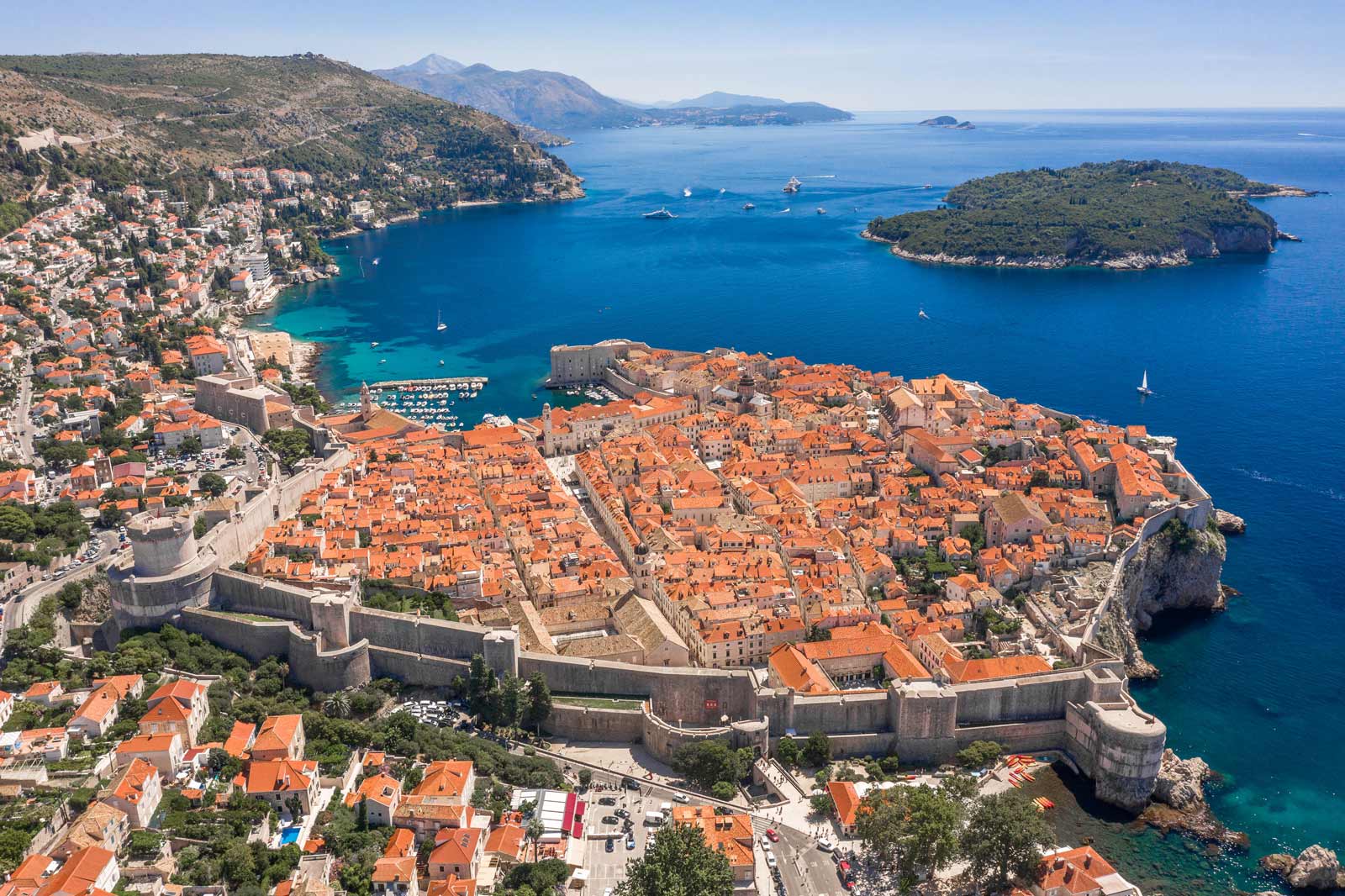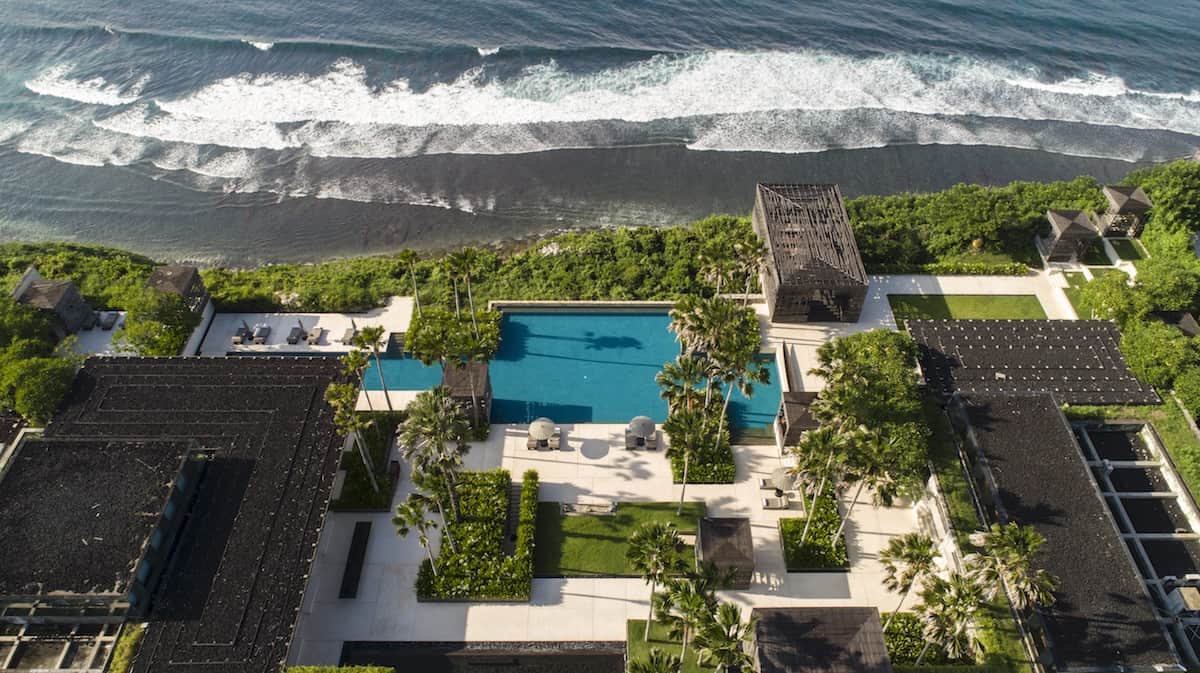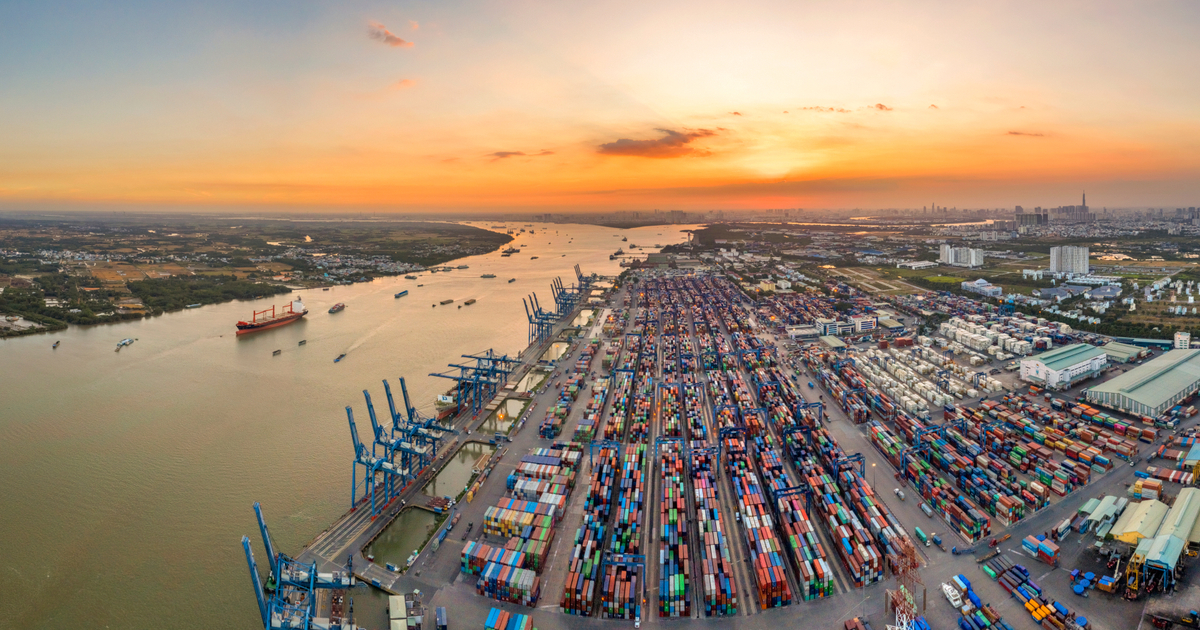22 Best Things to do in Dubrovnik, Croatia
Featuring a historic city center and startlingly beautiful nature, Dubrovnik combines everything we love about Croatia into one storied city. The Old Town is a one-way ticket back to the ... Continue Reading Read the original post 22 Best...

Featuring a historic city center and startlingly beautiful nature, Dubrovnik combines everything we love about Croatia into one storied city. The Old Town is a one-way ticket back to the 15th century, with adventures and secrets hovering around each turn. As for the scenery, well, the Dalmatian Coast does not disappoint.
When it comes to the best things to do in Dubrovnik, Croatia travelers will have a full slate of options. Your day can start early enjoying a coffee in a 600-year-old square and end by watching the sun go down from an ultra-modern beachfront bar.
With no shortage of attractions, it can be tricky sifting through the highlights. So keep our Dubrovnik guide handy so you can best explore this magical city.
The Top Things to Do in Dubrovnik, Croatia
If you are a Game of Thrones fan Dubrovnik will look incredibly familiar as it was the city used for “King’s Landing” in the series. A lot of the places featured in the popular series are here in Dubrovnik Old Town and should be visited as part of your time in the city. But, even if you have no idea what Game of Thrones is, you will fall in love with this beautiful seaside city in a heartbeat.
1. The Dubrovnik Cathedral
Draped in gorgeous Baroque style architecture, the Dubrovnik Cathedral is a standout in a city laden with ancient buildings. From the outside court area, you could gaze for hours upon the polygonal recess complete with a pristine domed roof. But the show doesn’t end there, with the landmark becoming ever more intriguing as you venture inside.
Otherwise known as the Cathedral of the Assumption of the Virgin Mary, the original building was completed in the 6th century. But an earthquake brought it to the ground (a common theme throughout Dubrovnik, Croatia). Its replacement stands before you today, one whose interior is just as brilliant as the elegant facade.
Harboring three opulent aisles, the cathedral is home to a series of exceptional pieces of art dating as far back as the 1500s. But it’s the Cathedral Treasury that’s perhaps most memorable with over 100 holy relics, gold, silver, a part of the cross that Jesus was crucified upon, and St. Blaise, the city’s patron saint.
2. The Old City Walls in Old Town
The wonderful part of traveling through Dubrovnik, Croatia is that you don’t have to visit a museum to see its amazing history. It’s written all over the city, in its buildings, cobblestone streets, and most notably along the Old City Walls. Originally developed to protect the Pearl of the Adriatic, the walls were a major part of Dubrovnik’s ascension to a UNESCO World Heritage Site.
The Dubrovnik city walls were first developed in the 7th century but the walls of mortar and limestone that you see today were constructed 800 years later. The redevelopment was spurred on by the fall of Constantinople and helped protect the city, with heights reaching up to 20 feet and the wall often just as thick.
Dubrovnik City Walls envelopes the Old Town for 1.2 miles and will take you around an hour to walk the entire length. A great way to experience the Old Town is to jump on this walking tour.
3. Loggia Square
In the heart of the pedestrian-only Old Town, Loggia Square is where you’ll find some of the most historic buildings in Dubrovnik. From the square, you’ll be able to see the Church of St. Blaise (Dubrovnik’s patron saint), Orlando’s Column, and the Onofrio Fountain. All have been a fixture in local life for centuries, but none are as renowned as the Loggia of the Bells.
This is the chief attraction in the square and was built in 1480. The bells were used as a warning system during times of unrest. Today it provides a focal point in a plaza that is as happening as ever. When visiting Loggia Square, find a nice spot to enjoy the popular meeting point where life goes on as it always has.
4. Pile Gate
One of the main attractions along Dubrovnik’s City Walls is Pile Gate. For hundreds of years, it was the main entrance into the Old Town of Dubrovnik. In fact, it was once surrounded by a moat with the addition of a drawbridge. The bridge was raised at night, stopping any unwelcomed visitors from entering.
In modern times, the drawbridge at Pile Gate remains down and the moat is now a pleasant garden. The pedestrian-only bridge shows few signs of age with the medieval walls rising imposingly to either side. As you walk through the gate’s tunnel, you’ll be able to envision the many others who have passed through since the 1500s. On the other side, you’ll find the main street of the Old Town, along with the Statue of St. Blaise.
5. The Fountain of Onofrio
After making your way through Pile Gate, you’ll have but a short walk to the memorable Fountain of Onofrio. Developed in the 1440s, the fountain is now one of the top Dubrovnik sights. But long before this, it was an important source of water to residents as it brought water in from the Dubrovacka River to the Old Town. For over 200 years, the Fountain of Onofrio remained untouched. However, a major earthquake in 1667 diminished its size but thankfully not its aura.
Behind the fountain is St. Saviour Church. This opened in the 16th century after a force of divine intervention prevented an earlier earthquake from harming Dubrovnik. Interestingly, despite its proximity to the fountain, the church escaped any damage in the earthquake of 1667.
6. The Stradun of Dubrovnik
As Dubrovnik’s main street, the Stradun is the centerpiece of the pedestrian-only Dubrovnik Old Town. For those who love to walk and wander, this is the place to start. Walking down the historic street is one of the best things to do in Dubrovnik.
Also known as the Placa, the Stradun is where Dubrovnikans gather before making their way around town. Come here for some delightful people watching from your cozy cafe patio before enjoying a stroll.
The street may be short, but you’ll find a series of happening eateries, boutique shops, and the famous clock tower. Between them are rows of residential homes that stand beside each other in perfect symmetry. The interesting architecture will stop you in your tracks, so make sure to have your camera handy.
7. The Franciscan Monastery
One of the highlights of the Stradun is the Franciscan Monastery. The monastery stands quietly around the corner from Pile Gate, giving you a hint of the relative peace that exists behind its walls. From within, you’ll leave the bustling main street behind.
Built in the 1300s, the monastery features the third oldest pharmacy on earth. Travelers can venture back through the history of local medicine and peruse the jars and measuring devices that helped residents from the day it opened its doors in 1317.
After exploring the pharmacy, make your way through the Franciscan Monastery’s incredible collection of ancient scripts. Here, you’ll find arguably the most valuable library in the country, with over 21,000 rare manuscripts. Alongside the library is an equally fascinating museum home to a fine art collection and artifacts.
8. Fort Lovrijenac
It’s fair to say the rich history of Dubrovnik would be vastly different without its defenses, such as the Old Town Walls. But at the forefront of this was Fort Lovrijenac ( also known as the Red Keep in Game of Thrones), providing a protective eye over the Adriatic Sea and along the Dalmatian Coast.
Lovrijenac stands on the western end of the Old Town of Dubrovnik and is a veritable fortress standing 120 feet above the coast. It harbors a striking presence and proved to be impenetrable throughout its storied history.
Its walls, which are 40 feet thick, were developed in under 3 months by a motivated populace. They had caught wind of Venetian forces hoping to build their own fort here, only to be beaten to the punch.
Visitors will quickly notice the unique layout of the fort with its triangular designs. Rather poignantly, this made it almost impossible for Venetian forces to later make any headway.
St. John Fortress is another one to explore. The 16th-century fort is now home to the city’s aquarium and maritime museum.
9. Ride the Cable Car
The Dubrovnik cable car will take you high above the beautiful city for some picture-perfect views of Old Town and the surrounding area. The cable car ride lasts for around 10 minutes, quickly sweeping you up the mountainside to the summit of Mount Srd, 1350 feet above Dubrovnik. Beginning in 1969, the cable car remains as popular as ever and even runs until midnight during peak tourist season.
From your spot atop the mountain, you’ll be able to gaze down upon the turquoise Dalmatian Coast and the terracotta rooftops that dot the Old Town. From the summit, there is a path that will take you to the Imperial Fortress, where you’ll find the Homeland War Museum and the romantic Panorama Restaurant.
Wherever you end up, make sure to find a view for golden hour for one of the best sunset experiences in town. If you want some help then this tour takes you to all the high lookouts in Dubrovnik.
10. Banje Beach
From Mount Srd, keen eyes will be able to look down on Banje Beach, the top spot for a day on the sand. Banje Beach is the perfect alternative to exploring the Old Town. For as beautiful as the historic district is, sometimes you just need some R&R.
Banje Beach has a fun personality. Its bright white sand mixes perfectly with the electric blue water, creating a sight that is effortlessly gorgeous. Pair that with the backdrop of the Old Town and you will never want to leave. After a few days of busy explorations, kick back and watch the world go by.
The refreshing waters of the Adriatic Coast will help you cool off during the warm summer months. Its calm water also makes for great sea kayaking and adventures on a SUP. For food and drink, you won’t have to go far to find the waterfront bars and restaurants that line the Beach.
11. Rector’s Palace
As both an astonishing piece of architecture and home to one of the city’s best museums, visiting Rector’s Palace is one of the best things to do in Dubrovnik, Croatia. The palace was built in 1435 and has lost none of its grandeur, despite many attempts by man and nature.
Featuring a mix of Renaissance and Gothic styles, Rector’s Palace was damaged by explosions, fire, and earthquakes, only to be rebuilt each time. Now, as safe as ever, the palace is home to the Cultural Historical Museum. Here, you’ll discover Dubrovnik’s Medieval era in fantastic detail, along with many prominent works from the Renaissance.
Afterward, venture into the beautiful courtyard that stands in the heart of Rector’s Palace. If you’re lucky, you’ll arrive in time for a live music performance.
12. Go Sea Kayaking
Along the storied Dalmatian Coast are hints of eras past. From the City Walls to ancient forts, so much has happened. Add in the sparkling blue water of the Adriatic Sea and glistening white beaches, and you can see why Dubrovnik is a great place to go sea kayaking.
From the water, you’ll have a different perspective of the city, one that is even more pronounced with the help of an expert guide on a kayaking tour. On this guided tour, embark from Banje Beach and learn more about the incredible coastline that has changed local and international history.
As you paddle, you’ll be able to see into the translucent water where fish swim by. Touring its zenith with a paddle over to Lokrum Island, where you’ll swim into Betina Cave.
13. Visit Lokrum Island
While there are sea kayaking tours that will take you over to the serene Lokrum Island, it’s not the only way to explore the special place. In fact, you won’t even have to raise a sweat. From the Old Port, embark on a short ferry ride to the island.
Having wandered down the Stradun and visited ancient churches and museums, Lokrum Island will be the perfect complement to your travels. The island is devoid of residents if you ignore the colony of peacocks. As you explore the island, you’ll come across inland saltwater lakes enveloped by dense forests, a botanical garden, and even a nudist beach.
But even in paradise, Dubrovnik’s history is still present. Away from the lakes and beaches is an 11th-century Benedictine monastery and Fort Royal Castle. The latter was built by the French under Napoleon.
14. Game of Thrones Tour
As you visit Dubrovnik and indeed the rest of Croatia, you may find some of the sites eerily familiar. As we mentioned above, the city and country are home to some of the most memorable Game of Thrones filming locations. These helped form the basis of what made the show such a hit as it was able to use real historical landmarks from around the world.
The wonderful news for travelers is how accessible these sites are, with or without a tour. Some of the aforementioned attractions were filming locations, most notably King’s Landing, which was filmed in Dubrovnik Old Town. Another highlight is Blackwater Bay, where the infamous battle for the fictional city took place.
Although you can see these on your own, this Game of Thrones tour will further peel back the curtain on the show, including where Cersei did her walk of shame.
15. Museum of Modern Art
The Museum of Modern Art first opened its doors in 1945. Since then, its collection has grown while becoming the foremost gallery in Dubrovnik, Croatia. Those who love their art should add the museum to their itinerary with enough time to peruse their extensive collection of over 3,000 pieces.
The MOMAD showcases some of the best local and national talents. These are shown alongside some renowned international luminaries. The strongest section of the museum is the modern art period that began in the late 19th century and lasted until the Second World War.
For those unaware of great Croatian artists, as you explore the Museum of Modern Art, keep your eyes out for the names Marko Murat, Niko Miljan, and Marko Rasica.
16. The Dominican Monastery
The Dominican Monastery was first dreamed up in the 14th century. Original plans were so grand and extensive that Dubrovnik had to remove and re-establish parts of City Walls. Upon completion, it stood until the tragic earthquake that shocked the city in 1667. From there, it was faithfully rebuilt from the bottom up.
Those visiting Dubrovnik will have the chance to admire the monastery’s famous Gothic cloisters and the extensive art collection with pieces dating back to the 15th century.
Most visitors will make a beeline for the Franciscan Monastery, often leaving this attraction with few crowds. Take your time to indulge in a more peaceful experience as you gaze upon art and golden relics before kicking back in the ornate courtyard as birds flutter above.
17. Montenegro Day Trip
One of the best day trips you can take from Dubrovnik is the one to Montenegro. The small country is a short and scenic two-hour drive away and provides a different yet equally magical experience for travelers.
Montenegro has captivating scenery in spades along with charming old-time villages. Because of its diminutive size, it’s easy to explore it all in a short period. This guided day trip really lets you see it all.
Once you’ve arrived in Montenegro, head to Budva. This coastal town has all the makings of a medieval village, including its own walled city and terracotta rooftops. After embarking on a self-guided walking tour, head to the Bay of Kotor to discover an epic fjord.
On your way back to Dubrovnik, stop by the Dumitor National Park for a hike into the hills.
18. Sponza Palace
Just like the Church of St. Blaise, Sponza Palace managed to escape the wrath of the 1667 earthquake. This makes the palace, which was developed in the early 16th century, one of the oldest structures in the city.
Since the beginning, the palace has been a prominent secular building with its exterior plaza playing host to merchants and traders for over 400 years. Today, you can even see markings on the palace wall reminding marketgoers not to swindle other members of the community.
Architecture aficionados could admire the facade of Sponza Palace for a long while. But those who venture inside will find a building that is now home to the city’s archives in Old Town. Come discover over 100,000 documents, some of which are from the 10th century.
19. The Red History Museum
Much of your time within Dubrovnik’s Old Town will be spent discovering and admiring an ancient culture. But much has occurred in Croatia since then, especially during the 20th century. For a modern take on local history, be sure to visit the Red History Museum.
The museum explores the communist reign of the Yugoslav Federation from 1945 to 1991. The museum spans from humble beginnings, having been started by a group of friends who wanted to tell this story and that of the Homeland War.
Visitors can get to know life under the regime and the war that ended it while checking out artifacts such as period furniture, old magazines, and comb books.
20. Elafiti Islands
North along the Dalmatian Coast is the Elafiti Islands. This small archipelago will perfectly complement your time at Lokrum Island and increase your love for Croatia’s epic scenery.
The Elafiti Islands are made up of six intriguing specks of land, with two of them being completely devoid of traffic. Having spent time in the boisterous Old Town and seeing the cruise ships hang out in the West Harbour, this will be an appreciable change of pace and a perfect day trip.
High on the agenda should be the beautiful village of Lopud. Here, you’ll spot an ancient fort looking over a town where narrow streets bring together old monasteries, homes, and vibrant gardens. Other places to visit include the fruit groves on Sipan and the forests on Kolocep. This day trip to the Islands is the perfect way to enjoy all they have to offer.
21. Go on a Wine Tour
The stunning world that surrounds Dubrovnik isn’t just for looking. The climate has led to Croatia being a renowned wine-growing country. Like the local buildings, wine-growing has long been a part of the nation’s history, with Croatia home to 300 wine districts.
From the Croatian Uplands to Slavonia and Danube, there is no shortage of exceptional wines and distinct grapes. Dubrovnik falls within the Dalmatia region and there are many wineries that are worth visiting.
A car rental may come in handy, but if you just want to enjoy the wine and the scenery, then embark on this tour. Enjoy a variety of wine tastings while also exploring the birthplace of Marco Polo.
22. The Cliff Bars
Speaking of boozy fun, the best way to celebrate your time in Dubrovnik is by visiting one of the city’s famous cliff bars. These bars are set upon outdoor terraces, offering panoramic views as vibrant as the cocktail in your hand.
With the bars facing west, you can sit back and sip as golden hour takes over the horizon, painting the sky in shades of warm colors. Beneath you, the Old City Walls soak up the day’s last light and the waves crash down on the beach.
Travel Tips for Dubrovnik, Croatia
Wake Up Early
Day trippers to Dubrovnik, Croatia will quickly fill the busy Old Town streets come midday. Wake up early to explore before they arrive.
Avoid the Cruise Ships
In a similar vein, if you see a cruise ship in the port, it may be a good time to embark on a day trip to the surrounding islands or into the mountains.
Keep Your Passport Handy
Dubrovnik is essentially surrounded by Montenegro and Bosnia. Even for short day trips, keep your passport handy in case you have to cross a border.
How to Get to Dubrovnik?
The simplest way to get to Dubrovnik, Croatia, is by plane. Dubrovnik Airport has several direct flights from international destinations along with regular flights from Zagreb and Split.
Driving through Croatia is as scenic as it is easy. The country has a great highway system that makes it a breeze to get from A to B. However, if traveling by car, you’ll have to pass through Bosnia and Herzegovina for just a few miles.
Public transport is your third option with busses departing from Zagreb. Boats also depart from Split.
Getting Around Dubrovnik
Most of your time in Dubrovnik will revolve around the Old Town. The historic district is very small, only taking around 10 minutes to walk from one end to the other.
This means all attractions are within walking distance, once you have made it through the gates. If you’re staying on the edge or within the Old Town, you won’t have much to worry about.
However, that part of town can be quite expensive, especially during the summer. If you stay further out, the local bus network covers most of the city.
If you’re taking the local bus, consider getting a Dubrovnik Card. This will cover your cost of transport while providing free access to many top attractions.
The Best Time to Visit Dubrovnik
The warm temperatures make visiting Dubrovnik in the summer the most popular. But travelers will have to prepare themselves to brave the crowds, especially in the small and cramped Old Town.
For this reason, you can’t beat traveling here in the shoulder seasons. Late spring and early fall will still have beach-worthy temperatures and hotel room rates will also drop.
Budget travelers should consider April and October. Although it can be a bit colder, attractions and hotels won’t be as expensive and you can experience the historic city with lower crowds.
Where to Stay in Dubrovnik?
As we mentioned above, accommodation prices fluctuate based on the time of year. This is standard in many tourist cities but is arguably more pronounced in Dubrovnik.
Keep in mind that Dubrovnik is rarely a budget-friendly destination. There are ways around this, but what may be a decently priced hotel in April could be double the price come June. For a more in-depth look, check out our article on where to stay in Dubrovnik.
BudgetApartments Lora provides the comforts of your own living space without the hefty price tag. You’re only a few minutes from the beach and under 2,000 feet from the Old Town and you’ll have access to a private kitchen and communal terrace with sea views.
Mid-rangeStay inside the City Walls at La Vita e Bella. The fully furnished units are steps from the Stradun and the Franciscan Monastery and a few minutes from the beach. Guests will also have access to the airport shuttle.
LuxuryThe Pucic Palace puts you in the heart of the Old Town while staying in your own baroque palace from the 1700s. Enjoy elegant furnishings, an on-site restaurant and wine bar plus easy access to the Stradun and the beach.

 Kass
Kass 





























